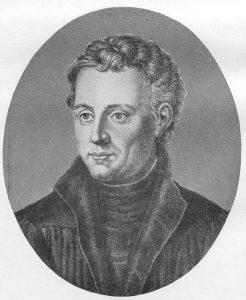The advancement of knowledge in any discipline involves both intensive research by individuals and collaboration among scholars across languages and cultures. In past centuries European scholars used Latin as the common language for exchange.
Serious efforts were made to build on the legacy of ancient translations of the Hebrew Bible in Greek and Latin. The translation of Aristotle’s works and Arabic commentaries brought new challenges to revitalize the search for knowledge. Sometimes these endeavors developed in a spirit of collaboration and with a search for justice on behalf of a minority.
Johann Reuchlin (1455–1522) was educated in the Latin of the Middle Ages, but he learned Hebrew to share areas of Jewish scholarship and practice with people of good will and intellectual curiosity. After meeting Giovanni Pico della Mirandola (1463 -1494) in Florence in 1490, Reuchlin became interested in Kabbalah. His purpose included the elucidation of Jewish mystical traditions for the benefit of Christian theology and piety.
The great contribution of Reuchlin was not only to tap Jewish sources, but also to defend the rights of Jews (grounded in Roman law beginning with the privileges granted long ago by Julius Caesar) and to respect the Jewish literary heritage.
After the invention of the printing press, the ancient practice of burning books was less destructive of a heritage but has continued into modern times as an act of rejection regarding the value of another culture. At great personal cost, Reuchlin defended the Jewish texts that others tried to defile. His “Expert Opinion concerning the Destruction of Jewish Books” opposed confiscation of Jewish liturgical and theological books. Jews were to be treated kindly to fulfill the command to love our neighbor.
Tragically that teaching of the Torah (Lev 19:18) and Jesus was ignored in many Christian settings! The witness of scholars today can be enhanced by recalling those who struggled against bigotry in their time.

